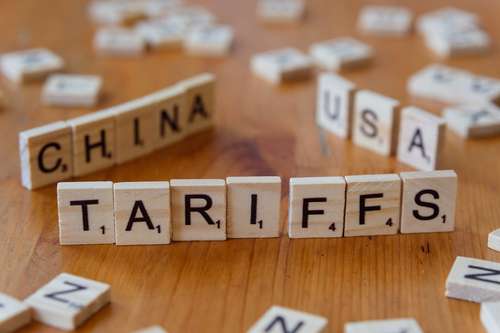In an effort to counter China's growing influence in the region, the US will open new embassies across the Pacific and announce millions in brand-new assistance for island states.
At this week's Pacific Island Forum, US Vice President Kamala Harris will inform attendees that the country will open consulates in Kiribati and Tonga, and that it is "on track" to rebuild its embassy in the Solomon Islands.
The US also intends to promote "ocean resiliency" by fighting illicit fishing by tripling financing to $US60m ($88.5m) annually over the following ten years for economic development.
The latest effort by the US comes as Australian Prime Minister Anthony Albanese prepares to visit Fiji for the Pacific Islands Forum and as Foreign Minister Penny Wong met with the leaders of Fiji and New Zealand on Tuesday in Suva.
In order to prevent a "catastrophic failure of deterrence," Australia and the US must increase its military cooperation and participation in the Pacific, according to Deputy Prime Minister Richard Marles, who is now on a four-day visit to the US.
In a speech in Washington on Tuesday, Mr. Marles said, "We are concerned about the use of force or coercion to advance territorial claims, as is occurring in the South China Sea, and its implications for any number of places in the Indo-Pacific."
"I will be outlining concrete steps that both sides may take to simplify procedures and get around obstacles in the areas of investment, information and data exchange platforms, export regulations, and procurement."

The White House announced the US government would publish its first-ever national strategy on the Pacific Islands and appoint a designated envoy to the PIF to "increase our overall diplomatic footprint across the Pacific Islands" prior to Ms. Harris's virtual address to Pacific Island countries this week.
The United States Agency for International Development, which has been reinstated, will "take steps to expand its presence in the Pacific to improve close co-operation with its host country partners," according to the White House, which also announced that US Peace Corps volunteers would "soon return to Fiji, Tonga, Samoa, and Vanuatu."
The announcement included a number of "firsts," such as the first US envoy to the Pacific Islands Forum and the first US national strategy on the Pacific Islands, and was an effort by Washington to position itself as the Pacific's partner of choice, according to Dr. Anna Powles, a senior lecturer in geopolitics and security studies at Massey University in New Zealand.
She said that these actions also represented Washington's admission that throughout the past few decades, its involvement in the Pacific had been sporadic, ad hoc, and not really significant.
"US efforts to reestablish its ties with the Pacific are motivated by the recognition that it has been absent from a region it has deep ties with through the freely associated states, and deep interests in such as fisheries, as well as strategic concerns about the role and influence of China in the Pacific," the US State Department said.
The fact that Harris had a spot to address leaders this week, said to Powles, was "very significant," but being at the center of geopolitical rivalry between superpowers posed risks for the Pacific.
“Pacific leaders are extremely capable of leveraging the strategic anxieties of external actors to secure opportunities and support, however, there is valid concern that strategic competition disrupts and undermines regionalism and regional unity, whether that be due to the increased tempo of partners and projects, poor or zero coordination, or the failure to align with Pacific priorities.”




